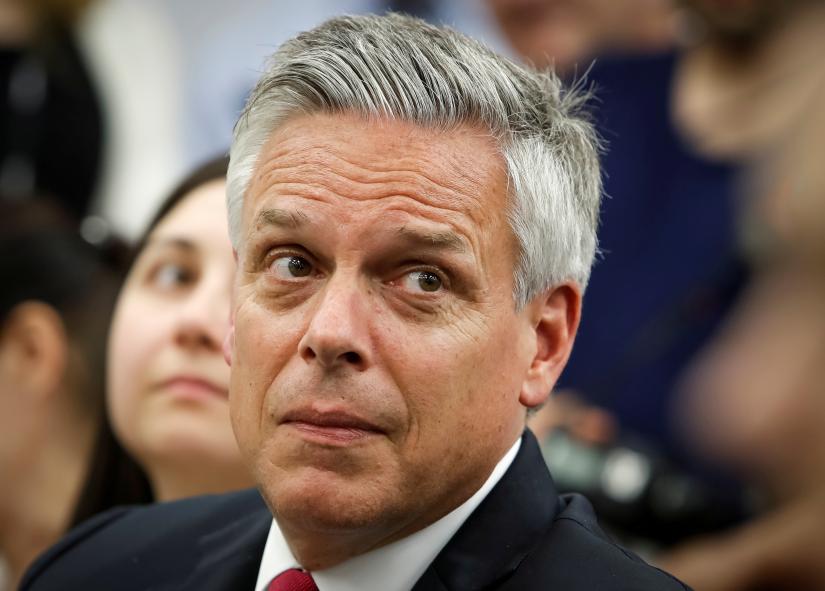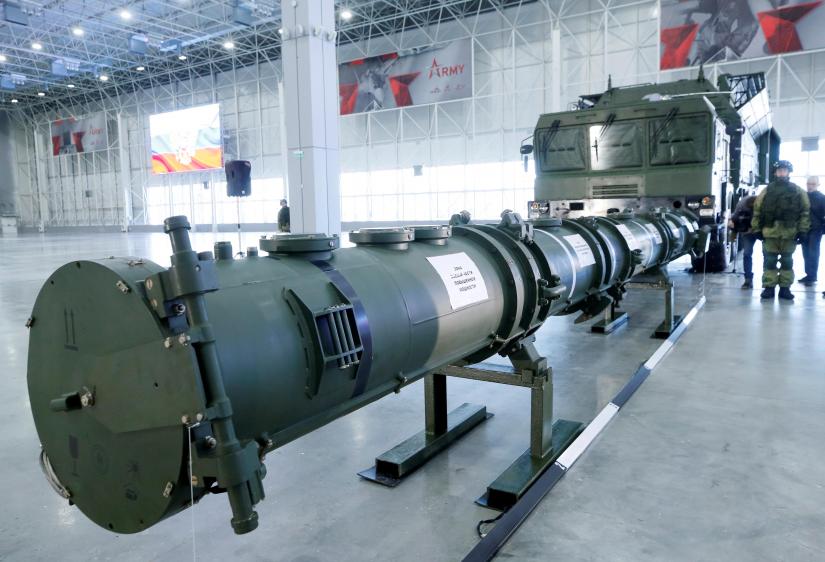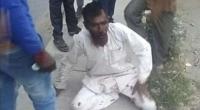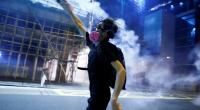 The last major nuclear arms control treaty between Russia and the United States is outdated and flawed, the U.S. ambassador to Moscow said on Wednesday, saying it could be scrapped altogether when it expires in 2021 and replaced with something else.
The last major nuclear arms control treaty between Russia and the United States is outdated and flawed, the U.S. ambassador to Moscow said on Wednesday, saying it could be scrapped altogether when it expires in 2021 and replaced with something else.
The New START treaty limits the number of strategic nuclear warheads the world's two biggest nuclear powers can deploy to no more than 1,550, the lowest level in decades. It also curbs the number of nuclear launchers and deployed land- and submarine-based missiles and nuclear-capable bombers they can have.
"Some want to extend New START. Some are arguing in favour of creating something new. I’m not sure where it will go," U.S. Ambassador to Russia Jon Huntsman told the Ekho Moskvy radio station on Wednesday.
The treaty's future is in focus after the United States withdrew from another landmark nuclear missile pact with Russia this month after determining that Moscow was violating that treaty, an accusation the Kremlin denied.
President Donald Trump, who told President Vladimir Putin in 2017 he thought it a bad deal for the United States, will only decide next year whether or not to extend the surviving New START treaty, U.S. officials have said. It was signed by his predecessor Barack Obama with Russia in 2010.
Regarded by many experts as the only thing preventing an unfettered arms race between the two Cold War rivals, the treaty can be extended for another five years, beyond its expiry date in February 2021, by mutual agreement. 'OPEN QUESTIONS'
'OPEN QUESTIONS'
Huntsman said the treaty had been agreed at a time that predated cyber warfare, hypersonic missiles, underwater nuclear platforms and torpedoes and what he said was China's strategic nuclear build-up.
It did not cover tactical nuclear weapons either and perhaps there was a case to include non-nuclear weapons in any new update, said Huntsman.
"So there are a lot of open questions. There will be discussions and agreements and disagreements about the vehicle to use – should it be an extension of New START, should it be something altogether new?" he said, saying Trump favoured an arrangement that would bring things into the modern era.
Putin has said Moscow is ready to extend the pact, but has complained about what he sees as Washington's lack of interest.
In June, after describing the nuclear threat as a "fiery serpent" that needed to be kept under control, Putin lamented what he said was a U.S. refusal to engage properly on the subject.
"If no one is interested in renewing (the treaty)... we will not renew it," said Putin.
On Tuesday, the Kremlin boasted that it was winning the race to develop new cutting-edge nuclear weapons despite a mysterious rocket accident last week in northern Russia that killed at least five people and caused a brief spike in radiation levels.
Moscow is developing a nuclear-powered cruse missile that it says will have an "unlimited range" and be able to overcome any defences.
 International
International
41240 hour(s) 19 minute(s) ago ;
Morning 03:13 ; Tuesday ; Jul 01, 2025
'Future of last US-Russia nuclear pact uncertain'
Send
Reuters
Published : 22:04, Aug 14, 2019 | Updated : 22:06, Aug 14, 2019
Published : 22:04, Aug 14, 2019 | Updated : 22:06, Aug 14, 2019
0 ...0 ...
/hb/
Topics: Top Stories
- KOICA donates medical supplies to BSMMU
- 5 more flights to take back British nationals to London
- Covid19: Rajarbagh, Mohammadpur worst affected
- Momen joins UN solidarity song over COVID-19 combat
- Covid-19: OIC to hold special meeting
- WFP begins food distribution in Cox’s Bazar
- WFP begins food distribution in Cox’s Bazar
- 290 return home to Australia
- Third charter flight for US citizens to return home
- Dhaka proposes to postpone D8 Summit
Unauthorized use of news, image, information, etc published by Bangla Tribune is punishable by copyright law. Appropriate legal steps will be taken by the management against any person or body that infringes those laws.
Bangla Tribune is one of the most revered online newspapers in Bangladesh, due to its reputation of neutral coverage and incisive analysis.
F R Tower, 8/C Panthapath, Shukrabad, Dhaka-1207 | Phone: 58151324; 58151326, Fax: 58151329 | Mob: 01730794527, 01730794528


